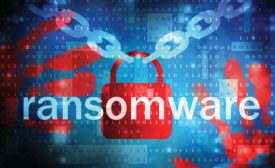Cybersecurity News
Data and the Life Ever After
Do You Have a Data Privacy Plan for After Death?
March 1, 2018
Please Forget to Change Your Password Every 90 Days
It's Time to Rethink Password Management Best Practices
March 1, 2018
Addressing the Cyber Security Skills Gap with Veterans
With Millions of Cybersecurity Jobs Left Unfilled, Veterans Could Be the Perfect Candidates to Address the Cyber Skills Gap
March 1, 2018
Sign-up to receive top management & result-driven techniques in the industry.
Join over 20,000+ industry leaders who receive our premium content.
SIGN UP TODAY!Copyright ©2024. All Rights Reserved BNP Media.
Design, CMS, Hosting & Web Development :: ePublishing












